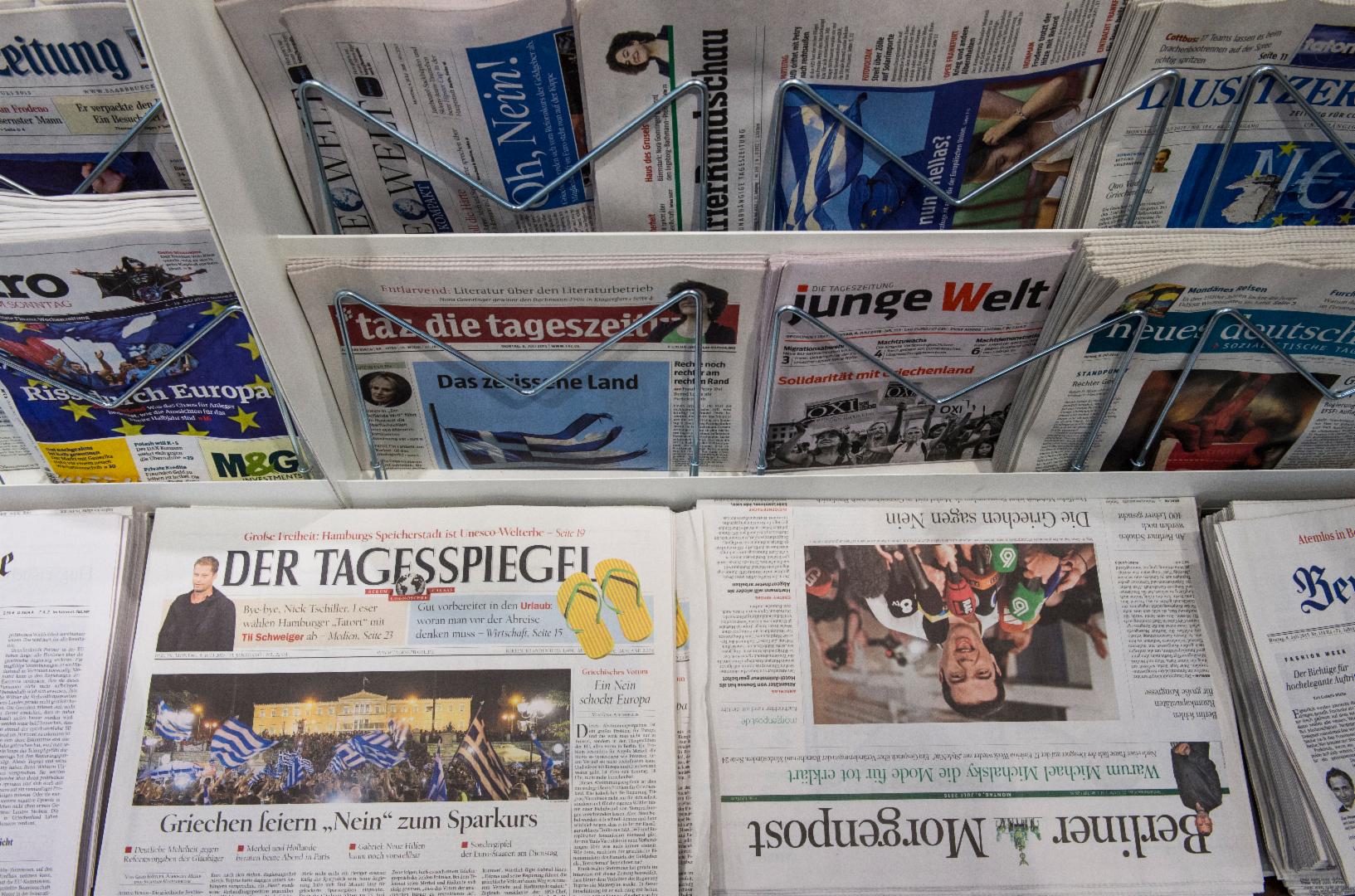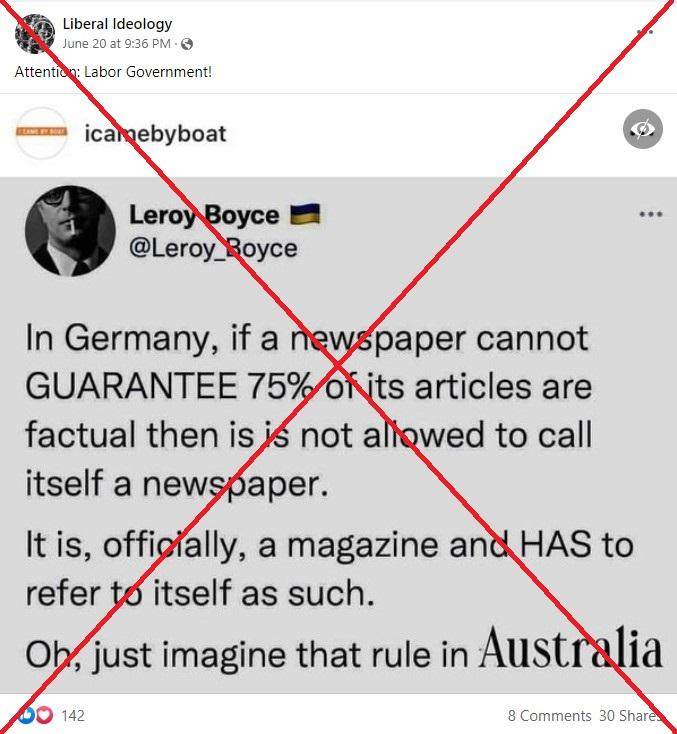
German newspapers need not 'ensure 75 percent of articles are factual or call themselves magazines'
- This article is more than three years old.
- Published on July 12, 2022 at 10:44
- Updated on July 12, 2022 at 10:52
- 2 min read
- By Aaishah JANIF, AFP Australia
"Attention Labor Government," reads this Facebook post, dated June 20, 2022.
The post shares a purported screenshot of a tweet that reads: "In Germany, if a newspaper cannot GUARANTEE 75% of its articles are factual then it is not allowed to call itself a newspaper.
"It is, officially, a magazine and HAS to refer to itself as such.
"Oh, just imagine that rule in Australia."

The purported screenshot, which appeared to have been shared by an Instagram account, was digitally altered from a tweet posted here on June 10.
The original tweet, which has been retweeted more than 1,400 times, made the same claim but concluded with "Oh, just imagine that rule in the UK..." -- not "Oh, just imagine that rule in Australia".
Screenshots of the tweet also circulated on Facebook here, here, here and here.
However, the claim is false.
No regulation, requirement or restriction
Nadja Wochmer, a spokesperson for the German government’s commissioner for culture and the media, told AFP: "There is no legal regulation that would define printed newspapers as requiring 75% factuality."
Dr Maja Malik, from the Department of Communication at the University of Muenster, in western Germany, said: "Media law in Germany makes no distinction between newspapers and journals or magazines."
"Freedom of the press also includes the fact that there are no admission requirements for newspapers and no testing procedures as to which publications may call themselves such," she told AFP.
Dr Pascal Juergens, of the Institute of Communication Studies at the University of Jena, in Germany, said there is "no licensing or licensing requirement, and no restriction on who can call themselves a newspaper or magazine."
Instead, the press are voluntarily self-regulated by the German Press Council, he told AFP.
Juergens added there are laws that define fact and opinion, but they are primarily used to direct liability, for example in cases of alleged defamation and personal attacks, "not because that would determine what a medium can be called".
Sonja Volkmann-Schluck, a spokesperson for the German Press Council, also told AFP the claim in the posts is "not true".
She added that newspapers and magazines in Germany have committed themselves to the principles of truthfulness and duty of care in the German Press Code.
"Published news or assertions, in particular those of a personal nature, which subsequently turn out to be incorrect must be promptly rectified in an appropriate manner by the publication concerned," reads Section 3 of the press code.
"Almost all newspapers, magazines and their online outlets in Germany are following these principles and take part in our complaints proceedings," Volkmann-Schluck said.
AFP also found no mention of newspapers being redefined as magazines if 75 percent of their articles are not factual in the German Press Code.
Copyright © AFP 2017-2026. Any commercial use of this content requires a subscription. Click here to find out more.
Is there content that you would like AFP to fact-check? Get in touch.
Contact us
